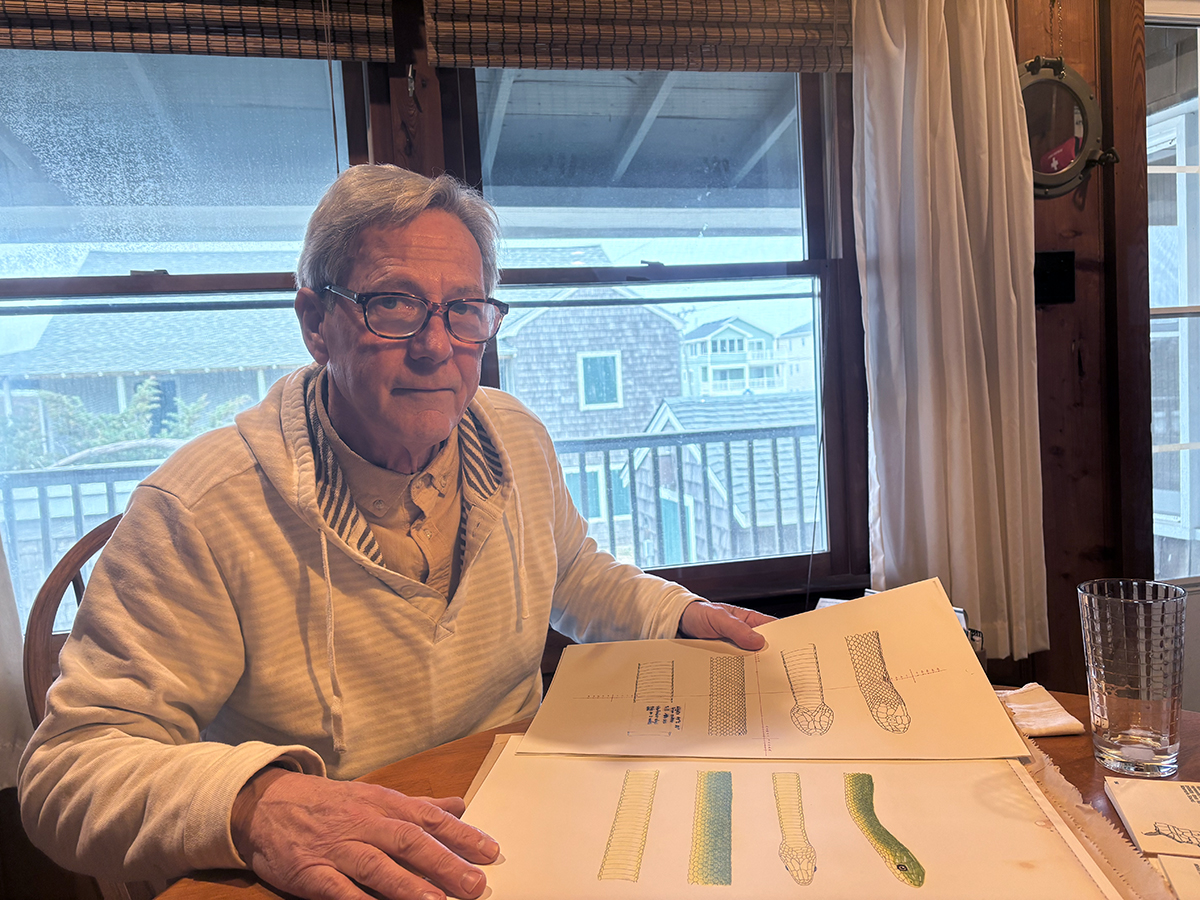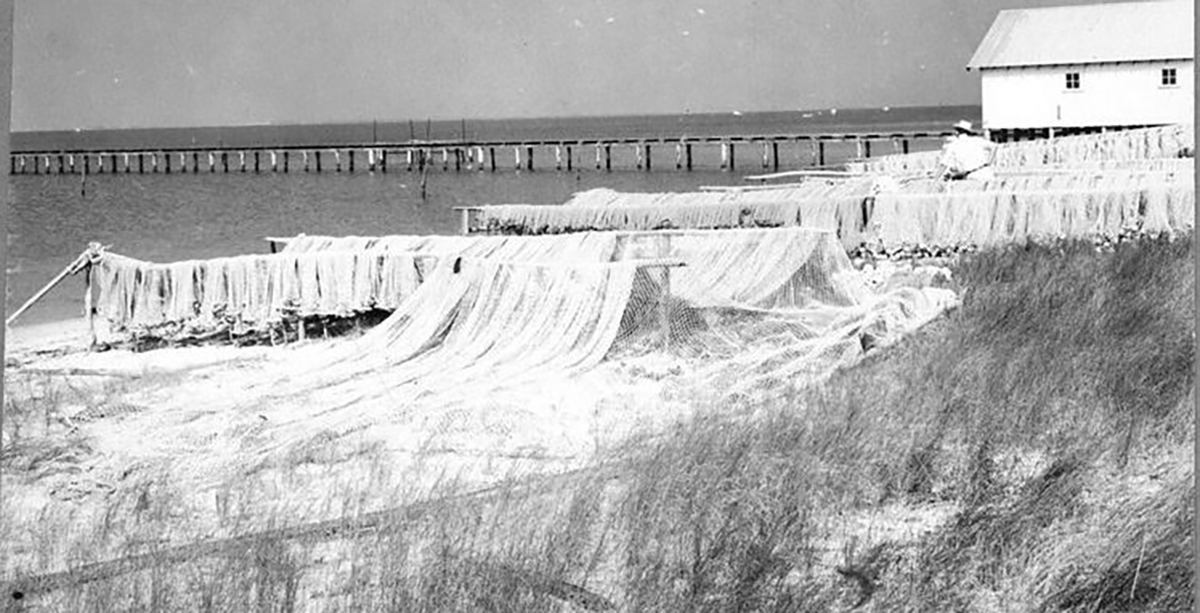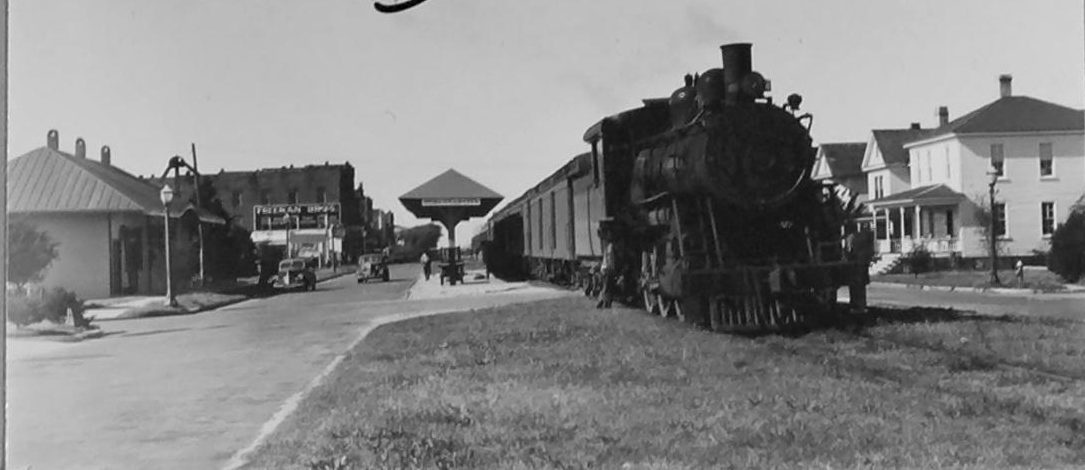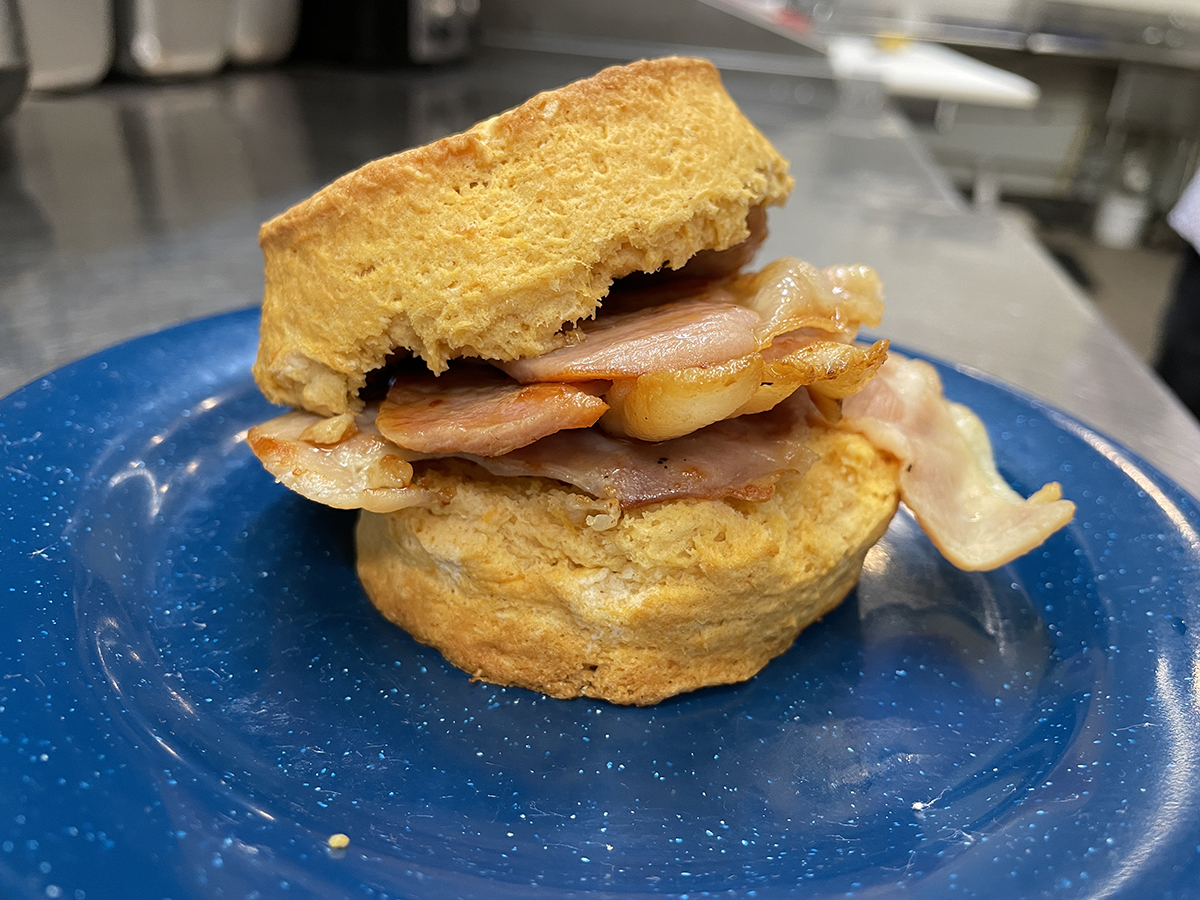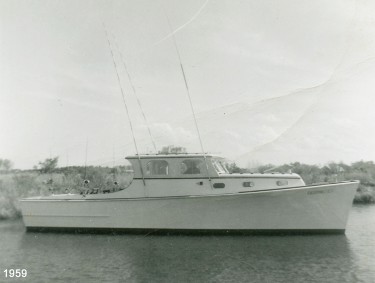
MANTEO — Sometimes a boat is not just a boat. For the best of them, a boat is a story — with a couple of meaty characters and a good ending.
For the freshly restored Deepwater, a newcomer at the Manteo waterfront docks, the story spans from the post-World War II era in Manteo through the halcyon days of Outer Banks charter fishing out of Oregon Inlet, with legendary Capt. Lee Perry at the helm.
Supporter Spotlight
And then the story stops. But it doesn’t end.
It took conservation heavy-hitter John Wilson IV, a member of one of those rarified 400-year-old Manteo families, and his partner, architect Billy Parker, to rescue the decaying Deepwater from certain inglorious demise.
“It’s just remarkable that a 63-year-old boat is as good as new,” Wilson says during a recent spin in Roanoke Sound. “Better than new. It will be around for another 63 years. And it will help us remember Lee Perry.”
With its polished mahogany trim and atypical stern, the vessel stands out, even amongst a few unusual neighbors moored nearby in Dough’s Creek, such as the Elizabeth II, the representative 16th-century sailing vessel owned by Roanoke Island Festival Park.
Wilson’s grandfather, with the help of renowned Outer Banks boatbuilders Warren O’Neal and Roy Etheridge, had built the Deepwater as a “picnic boat” more than 50 years ago to tool around in Shallowbag Bay with his wife and three children. There would be cold fried chicken and pimento cheese sandwiches and potato salad to share, with chocolate layer cake for dessert.
Supporter Spotlight
When it outgrew its mission, Deepwater was sold to a man in Kitty Hawk, who added a flying bridge and used the boat for fishing trips during the dawn of the charter fishing industry in Oregon Inlet. Perry, a colorful charter captain and native Kitty Hawk waterman, bought it in 1966. For 25 more years, Perry ran it in all kinds of weather, fished in all kinds of conditions and entertained all kinds of people with outrageous fish tales and hot-tempered rants that cooled as quickly as they erupted.
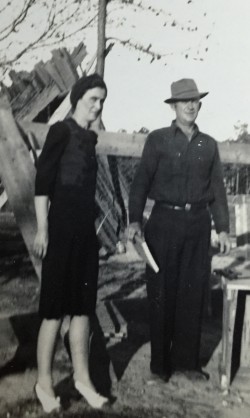
“There’s not a person who doesn’t have a story about Lee,” Wilson says affectionately.
When Wilson, a former mayor of Manteo, learned that the boat had been salvaged for its engine, he bought it for $5,000 and paid $6,000 more for a barn in which to store it.
“Billy and I bought the boat in 1991 when it was to be abandoned because it was too old, too slow and too outdated to be used for a charter boat business,” Wilson says.
It sat in storage until two years ago, when Parker spurred Wilson to make a decision. “It wouldn’t be here if he hadn’t insisted that we do this,” Wilson says.
Restoring historically valuable things is more than a hobby to the men. In 1980, Wilson and Parker founded the nonprofit Outer Banks Conservationists, which is best known for its restoration and management of the Currituck Beach Light Station.
The Deepwater still has its original juniper hull, crafted from wood taken from the Great Dismal Swamp. The unusual stern is pre-Carolina flair; it’s more of a blending of Harker’s Island and northern influences. The boat, which draws three feet and is 39 feet long and 13 feet wide, includes a lower cabin with a v-berth and a head with a shower that was converted from the original galley.
It took 18 months for Wanchese boatbuilder Wade Davis to restore the vessel. Davis is the son of renowned yacht builder Buddy Davis, another one-of-a-kind Outer Banks character who was instrumental in making Outer Banks boatbuilding a mega-million-dollar industry. He died in 2011 at age 62.
While enjoying lunch one day at Annie’s Great Gut Deli at Thicket Lump Marina, Wilson had a fateful conversation with Wade Davis about the Deepwater.
Having grown up on the docks in Wanchese, Davis, 45, was familiar with the Deepwater from the Lee Perry days. But it was “bad-looking” after being stored for 22 years, he recalls.
“The barn was dry as a daggone bone, which is not the best thing for a boat,” Davis says. “Fuzzy stuff covered the inside of the boat.”
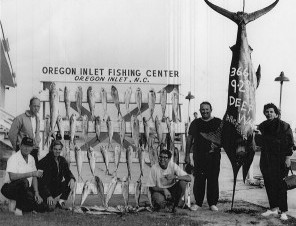
Poking around with his pocketknife, Davis realized that things weren’t as bad as they appeared. “I said ‘Gosh, John, the boat isn’t rotten!’” Davis recounts. “It was more or less like it was before.”
After determining that the vessel was salvageable – even capable of being restored to near-new condition – Davis became more impressed with the craftsmanship of the construction. Joinery was remarkably tight. Only small sections of the cabin, mostly the windows, needed replacement, he says.
“It was done right,” Davis says. “The poorer the fit, the more the boat would have leaked. You’d have had a lot more water damage.”
Wilson had provided photographs of the original boat so Davis could bring the cabin back to its traditional lines. As he worked, he attracted a lot of attention – not for his work, but for locals’ memories of the Deepwater’s charter fishing years.
“Oh, gosh, everybody says that thing was an icon here,” Davis says. “The captain was very charismatic.”
One reason Perry was so memorable – besides his flash temper – was for his speech impediment resulting from a cleft palate he had had repaired as a child. Some people thought he was mentally impaired, Davis says, but “there was nothing dumb about Lee Perry.” The repair work he did on the boat, he says, was “impeccable.”
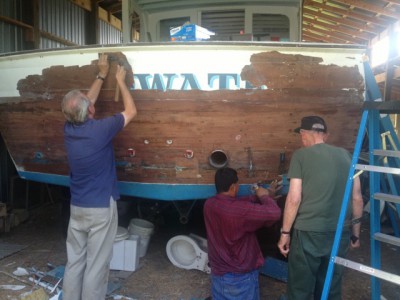
It’s satisfying to complete the work and see it looking pretty, Davis says, but it’s not like he won’t be working on it again. “Boats are like kids – they always come back,” Davis says. “They always need something. That thing’s good to go. It will outlive most of us.”
Kitty Hawk fisherman Charles Perry, 69, grew up with Lee Perry, who was his first cousin, and remembers him fondly. Perry says that his cousin loved to fish with a passion.
“Fishing excited him as much as anyone could get excited,” Perry recalls. “The last blue marlin he saw was just as exciting as the first blue marlin he saw, I promise you.”
Despite a lisp, he talked a lot, but it took people awhile to understand him. Perry says he remembers hearing about people spending all day with his cousin on charter trips, and confessing later that they didn’t understand one word he had said the entire time.
Sometimes he would get so charged up that he forgot he was holding the mic button down on the radio. “He’d talk nonstop for three or four minutes,” Perry recalls. “All of us would be laughing. He was hilarious . . . We’d sit up on the bridge and listen and laugh and laugh.”
But people didn’t laugh at Perry, who was also known for his generosity and kindness. It’s just that he was so animated, everyone enjoyed his shenanigans.
One line he used outlived him, Perry says. His cousin had a habit of eating soda crackers while on the boat, he says. When he hooked a blue marlin, he would exclaim so enthusiastically that he would spit the crackers as he yelled. Over the years, the expression “Soda crackers all over the bridge” became synonymous in Outer Banks fishing circles with catching a blue marlin.
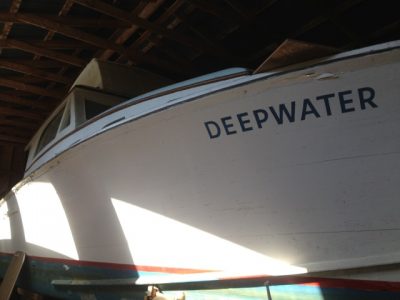
Perry says he was recently on a fishing trip in Costa Rica when he heard a voice crackling excitedly over the radio: “Soda crackers all over the bridge!”
“When I heard that on the radio out there, I’d like to die,” Perry says, laughing at the memory.
Another time years ago, he was at a remote area of Hawaii, when he came upon a local captain at a marina. “I introduced myself,” Perry recalls. “He says, ‘You any kin to Lee Perry?’ This was in 1975. People already knew stories about Lee Perry. Every day, there was an adventure.”
Since they don’t fish, Wilson and Parker thought it more appropriate to take the Deepwater back to its picnic days, Wilson says, and to leave the charter fishing days to retellings of the Lee Perry escapades. For the time being, the Deepwater will remain at the Manteo waterfront, quietly memorializing generations of Outer Bankers and their stories.
Davis says that just like fixing up an old house, it took a lot more work and money to restore the Deepwater than it would have taken to build it from scratch.
“John’s got a great eye,” Davis says. “Not everybody has the vision to see something when they’re looking at an old rotten boat. All that – it’s all his dream. I did what he asked me to do.”



